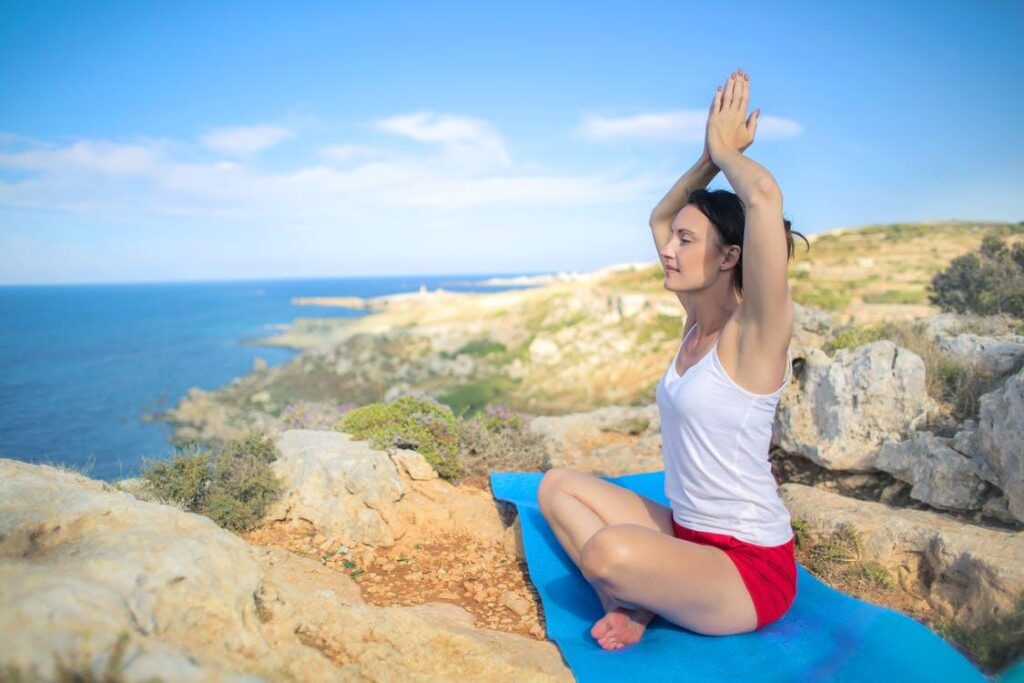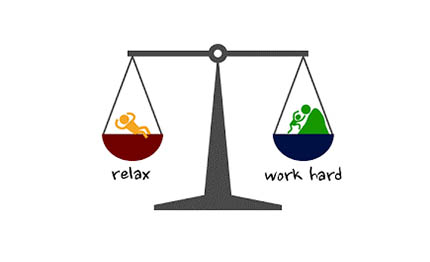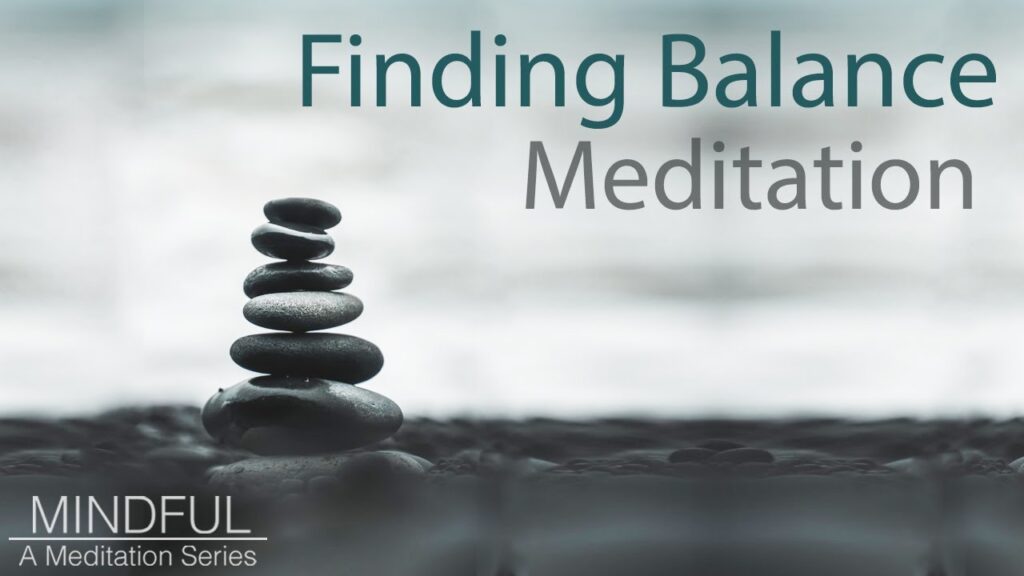In today’s fast-paced world, finding a sense of balance and relaxation can often feel like an elusive goal. With constant demands and endless to-do lists, it’s easy to become overwhelmed and burnt out. However, it’s crucial to prioritize self-care and make time to unwind. Whether it’s through practicing mindfulness techniques, engaging in physical activities, or simply taking a break to do something you enjoy, finding moments of calm and tranquility can greatly improve your overall well-being. This article explores various strategies and tips to help you find that essential balance and relaxation in your life.
The Importance of Balance and Relaxation
In today’s fast-paced and demanding world, finding balance and relaxation has become more crucial than ever. Our busy lifestyles often leave us feeling overwhelmed, stressed, and burnt out. However, taking the time to prioritize balance and relaxation can have significant benefits for our overall well-being and quality of life. By understanding the need for balance and recognizing the benefits of relaxation, we can begin to incorporate effective techniques and strategies into our daily lives.
Understanding the Need for Balance
Balance is the key to maintaining harmony in all aspects of our lives – physically, mentally, and emotionally. It involves finding the right equilibrium between work and play, rest and activity, and social interactions and solitude. When we neglect to prioritize balance, we may experience negative consequences such as chronic stress, fatigue, decreased productivity, and strained relationships. It is essential to recognize that finding balance is not a one-time event but an ongoing process that requires attention and effort.
Recognizing the Benefits of Relaxation
Relaxation is a vital component of maintaining overall well-being. When we allow ourselves to relax, we give our bodies and minds the opportunity to recharge, rejuvenate, and heal. Relaxation can help reduce stress, lower blood pressure, improve sleep quality, enhance cognitive function, and boost mood. It also allows us to cultivate greater self-awareness and develop a more positive outlook on life. When we prioritize relaxation, we experience improved physical health, mental clarity, and emotional resilience.
Physical Techniques for Finding Balance and Relaxation
Various physical techniques can help us find balance and relaxation in our daily lives. By incorporating these practices into our routines, we can effectively manage stress, promote physical well-being, and foster a sense of inner calm.
Practicing Deep Breathing
Deep breathing is a simple yet powerful technique that can instantly induce relaxation. By taking slow, deep breaths and focusing on the sensation of the breath entering and leaving our bodies, we activate the body’s relaxation response. Deep breathing slows down the heart rate, decreases blood pressure, and increases oxygen flow to the brain, promoting a state of relaxation and balance.
Engaging in Regular Exercise
Regular exercise is not only beneficial for physical health but also plays a crucial role in balancing our mental and emotional well-being. Engaging in physical activities such as walking, running, yoga, or dancing helps release endorphins, the body’s natural “feel-good” chemicals. Exercise also reduces stress hormones, improves sleep quality, and boosts self-confidence. By incorporating regular exercise into our routines, we can find balance by prioritizing our physical well-being and releasing pent-up tension and stress.
Exploring Yoga and Meditation
Yoga and meditation practices are ancient techniques that promote balance and relaxation by integrating the body, mind, and spirit. Yoga combines physical postures with breath control and mindfulness, while meditation involves focusing the mind on a specific thought, object, or mantra. Both practices help calm the mind, enhance body awareness, and reduce stress and anxiety. By incorporating yoga and meditation into our lives, we can develop a greater sense of balance and find moments of tranquility amidst the chaos.
Utilizing Progressive Muscle Relaxation
Progressive muscle relaxation is a technique that involves systematically tensing and relaxing different muscle groups in the body. By focusing on each muscle group and consciously releasing tension, we can induce a deep state of relaxation. This practice helps relieve physical tension, reduces anxiety, and promotes a sense of calm and well-being. By incorporating progressive muscle relaxation into our routines, we can learn to recognize and release physical and mental tension, leading to greater balance and relaxation.

Mental and Emotional Approaches to Finding Balance and Relaxation
In addition to physical techniques, there are various mental and emotional approaches that can help us find balance and relaxation. By prioritizing self-care, cultivating mindfulness, managing stress and anxiety, and seeking support, we can effectively nurture our mental and emotional well-being and achieve a more balanced and fulfilling life.
Prioritizing Self-Care and Rest
Self-care is the practice of actively taking care of ourselves in ways that promote physical, mental, and emotional well-being. It involves recognizing our own needs and making conscious choices to nurture and replenish ourselves. Prioritizing self-care includes activities such as getting enough sleep, eating nutritious meals, engaging in hobbies, practicing relaxation techniques, and setting boundaries to protect our time and energy. By making self-care a priority, we can establish a foundation of balance and relaxation in our lives.
Cultivating Mindfulness
Mindfulness is the practice of being fully present in the moment, without judgment or attachment. It involves paying attention to our thoughts, feelings, bodily sensations, and the environment around us. Cultivating mindfulness can help us gain clarity, reduce stress, and enhance our overall well-being. By practicing mindfulness, we can quiet the constant chatter of our minds, find inner peace, and become more attuned to our needs and the present moment.
Managing Stress and Anxiety
Stress and anxiety can significantly disrupt our sense of balance and relaxation. Therefore, it is crucial to develop effective strategies to manage and reduce these feelings. Some helpful techniques include identifying sources of stress, practicing relaxation exercises, engaging in enjoyable activities, seeking social support, and considering professional help if needed. By managing stress and anxiety, we can create space for balance and relaxation to thrive.
Finding Support in Relationships and Community
Building and nurturing supportive relationships and community connections is essential for finding balance and relaxation. By seeking out people who understand and support us, we can create a sense of belonging and develop a network of individuals who can provide emotional support and guidance. Engaging in activities and communities that align with our interests and values can also contribute to a greater sense of connection and well-being. Finding support in relationships and community allows us to share our burdens, celebrate our joys, and foster a more balanced and fulfilling life.
Creating a Balanced Lifestyle for Relaxation
To cultivate balance and relaxation in our lives, we must create a lifestyle that prioritizes these principles. By establishing daily routines, setting realistic goals and boundaries, incorporating pleasure and hobbies, and maintaining a healthy work-life balance, we can create a foundation for long-term well-being and harmony.
Establishing Daily Routines
Consistency is key when it comes to finding balance and relaxation. Establishing daily routines can help create structure and reduce decision fatigue. By carving out dedicated time for self-care, relaxation, and activities that bring us joy, we can set the stage for balance and relaxation to become integral parts of our lives. Creating and maintaining daily routines that align with our values and priorities can significantly enhance our overall well-being.
Setting Realistic Goals and Boundaries
Setting realistic goals and boundaries is essential for maintaining balance and preventing burnout. By setting achievable goals and breaking them into smaller, manageable tasks, we can avoid overwhelming ourselves and promote a sense of accomplishment. It is also crucial to establish clear boundaries in our personal and professional lives to protect our time, energy, and well-being. By setting realistic goals and boundaries, we can create space for relaxation and ensure that we do not become overburdened or stretched too thin.
Incorporating Pleasure and Hobbies
Incorporating pleasure and hobbies into our lives is a vital component of finding balance and relaxation. Engaging in activities and pastimes that bring us joy, fulfillment, or a sense of accomplishment can help us recharge and find moments of respite from daily stressors. Whether it is reading, painting, playing a musical instrument, or engaging in sports, making time for activities we enjoy nurtures our well-being and promotes a more balanced and relaxed lifestyle.
Maintaining a Healthy Work-Life Balance
Maintaining a healthy work-life balance is crucial for overall well-being and preventing burnout. It involves setting priorities, managing time effectively, and establishing clear boundaries between work and personal life. By honoring our non-work commitments, taking regular breaks, and practicing self-care, we can avoid becoming overwhelmed and depleted. Maintaining a healthy work-life balance enables us to find time for relaxation and rejuvenation, leading to increased productivity and satisfaction in all areas of life.

Finding Balance and Relaxation in a Digital Age
In today’s digital age, our reliance on technology can often hinder our ability to find balance and relaxation. It is important to recognize and manage our screen time, disconnect from technology, and establish digital boundaries for the sake of our well-being.
Recognizing and Managing Screen Time
While technology offers numerous benefits, excessive screen time can negatively impact our mental, emotional, and physical health. It is crucial to recognize and manage our screen time by setting limits and boundaries. This can include establishing designated technology-free hours or zones, using productivity apps to track and limit screen time, or creating rules around technology use during meals or before bedtime. By being mindful of our screen time and taking steps to reduce it, we can create space for balance and relaxation in our lives.
Disconnecting through Nature and Outdoor Activities
Spending time in nature and engaging in outdoor activities can be immensely beneficial for finding balance and relaxation in a digital age. The sights, sounds, and serenity of nature can help us reconnect with ourselves and the world around us. Whether it is going for a walk in the park, hiking, gardening, or simply sitting in nature, immersing ourselves in natural environments can lower stress levels, improve mood, and promote a sense of calm and balance. Disconnecting from technology and embracing the beauty of nature can be a powerful way to find relaxation in today’s fast-paced world.
Establishing Digital Boundaries and Timeouts
Establishing digital boundaries and timeouts is crucial for maintaining balance and relaxation. This can involve setting restrictions on answering work emails after a certain hour, turning off notifications during dedicated relaxation time, or implementing a digital detox day where we disconnect from all technology. By setting clear boundaries and taking regular breaks from technology, we give ourselves the opportunity to recharge, be present in the moment, and find balance in our lives.
Nurturing Psychological Wellbeing for Balance and Relaxation
Taking care of our psychological well-being is essential for finding balance and relaxation. By practicing self-compassion and acceptance, developing healthy coping mechanisms, and exploring therapy and counseling options, we can effectively nurture our mental and emotional well-being.
Practicing Self-Compassion and Acceptance
Practicing self-compassion and acceptance involves treating ourselves with kindness, empathy, and understanding. It means embracing our imperfections, acknowledging our limitations, and being gentle with ourselves during difficult times. By cultivating self-compassion and acceptance, we can reduce self-criticism, manage stress better, and foster a greater sense of overall well-being. Embracing self-compassion and acceptance allows us to find balance and relaxation by creating a more positive and compassionate relationship with ourselves.
Developing Healthy Coping Mechanisms
Healthy coping mechanisms are essential for navigating life’s challenges and finding balance and relaxation. Instead of resorting to unhealthy habits such as excessive drinking or emotional eating, it is important to develop healthy ways of coping with stress and negative emotions. This can include practices such as journaling, practicing mindfulness, engaging in creative outlets, seeking social support, or engaging in physical activities. By developing healthy coping mechanisms, we can effectively manage stress, enhance our resilience, and find moments of relaxation and calm amidst life’s ups and downs.
Exploring Therapy and Counseling Options
Therapy and counseling can be invaluable resources for finding balance and relaxation in our lives. They provide a safe and supportive space to explore our thoughts, emotions, and challenges with the guidance of a trained professional. Therapy can help us develop effective strategies for managing stress, overcoming obstacles, and improving our overall well-being. By seeking therapy or counseling, we can gain valuable insights, acquire new coping skills, and nurture our psychological well-being, leading to a more balanced and fulfilling life.

Finding Balance and Relaxation in Relationships
Our relationships play a significant role in our overall well-being and ability to find balance and relaxation. By communicating needs and boundaries, nurturing connections through quality time, and supporting each other’s self-care, we can foster healthier and more fulfilling relationships.
Communicating Needs and Boundaries
Open and honest communication is essential for maintaining balance and finding relaxation in relationships. By expressing our needs, desires, and boundaries with our loved ones, we can establish clear expectations and prevent misunderstandings. Effective communication allows us to be heard, understood, and supported, fostering a sense of balance and harmony in our relationships.
Nurturing Connections through Quality Time
Quality time together is crucial for nurturing our relationships and finding balance and relaxation. By setting aside dedicated time to connect with loved ones, we can strengthen our bonds, create positive memories, and experience a sense of joy and contentment. Whether it is sharing a meal together, engaging in meaningful conversations, or simply enjoying each other’s presence, quality time fosters a sense of balance and relaxation in our relationships.
Supporting Each Other’s Self-Care
Supporting each other’s self-care is an integral part of fostering balance and relaxation in relationships. By encouraging and actively participating in each other’s self-care practices, we demonstrate our commitment to nurturing each other’s well-being. This can involve providing emotional support, helping with household tasks, or simply giving each other space to engage in activities that promote relaxation. By supporting each other’s self-care, we create a mutually beneficial environment that promotes balance and harmony in our relationships.
Exploring Alternative Methods for Relaxation
In addition to the traditional techniques mentioned earlier, there are various alternative methods for relaxation that can be explored for finding balance. These methods include acupuncture and acupressure, aromatherapy and essential oils, massage therapy, and sound and music therapy.
Trying Acupuncture and Acupressure
Acupuncture and acupressure are practices rooted in traditional Chinese medicine that involve stimulating specific points on the body to promote relaxation and balance. Acupuncture uses thin needles, while acupressure applies pressure with the fingers or hands. Both techniques can help release tension, reduce pain, and restore energy flow in the body, leading to a sense of relaxation and well-being.
Experimenting with Aromatherapy and Essential Oils
Aromatherapy utilizes the therapeutic properties of essential oils to promote relaxation and balance. Essential oils, derived from various plants, can be inhaled, applied topically, or used in diffusers to create a calming and soothing environment. Scents such as lavender, chamomile, and bergamot are known for their relaxing properties and can help reduce stress and anxiety, enhance sleep quality, and promote overall well-being.
Discovering the Benefits of Massage
Massage therapy is a popular method for relaxation and stress relief. Whether it is Swedish massage, deep tissue massage, or hot stone massage, the physical touch and manipulation of muscle tissue can help release tension, reduce pain, and induce a state of deep relaxation. Massage therapy also promotes the release of endorphins, providing a natural mood boost and enhancing overall well-being.
Exploring Sound and Music Therapy
Sound and music therapy involve using auditory stimuli to promote relaxation and balance. This can include listening to calming music, playing musical instruments, or participating in sound healing sessions. The rhythmic patterns and vibrations of sound and music can help reduce stress, calm the nervous system, and promote a sense of tranquility and relaxation. Exploring sound and music therapy can offer alternative avenues for finding balance and relaxation in our lives.

Maintaining Balance and Relaxation in Daily Life
Once we have established effective techniques and practices, it is crucial to integrate them into our daily lives to maintain a state of balance and relaxation. By practicing time management and organization, learning to prioritize and delegate, saying no to overcommitment, and setting aside regular breaks, we can ensure that balance and relaxation remain a constant presence.
Practicing Time Management and Organization
Efficient time management and organization are crucial for maintaining balance and relaxation in our daily lives. By prioritizing tasks, setting realistic deadlines, and creating schedules that include dedicated time for relaxation and self-care, we can avoid feeling overwhelmed and maintain a sense of balance. Effective time management and organization allow us to use our time wisely, attend to our responsibilities, and enjoy moments of relaxation and leisure.
Learning to Prioritize and Delegate
Learning to prioritize and delegate tasks is essential for maintaining balance and avoiding burnout. By identifying our most important tasks and focusing on them first, we can prevent ourselves from becoming overwhelmed by less critical responsibilities. Delegating tasks to others when possible can also help lighten our load and free up time for relaxation and self-care. By effectively prioritizing and delegating, we create space for balance and relaxation to thrive.
Saying No to Overcommitment
Saying no is a powerful skill for maintaining balance and relaxation in our lives. It is important to recognize our limitations and not overcommit ourselves to avoid spreading ourselves too thin. By setting boundaries and being selective about how we allocate our time and energy, we can ensure that we have ample opportunities for rest, relaxation, and rejuvenation. Saying no when necessary allows us to focus on activities that truly align with our priorities and bring us joy.
Setting Aside Regular Breaks
Regular breaks are essential for maintaining balance and relaxation throughout the day. Taking short breaks between tasks or activities allows us to recharge, clear our minds, and sustain a higher level of focus and productivity. Whether it is a short walk, stretching exercises, mindfulness practice, or simply taking a few deep breaths, setting aside regular breaks ensures that we do not become overwhelmed or depleted. By incorporating regular breaks into our routines, we create an ongoing opportunity for balance and relaxation in our daily lives.
Taking Time for Self-Reflection and Gratitude
Self-reflection and gratitude are powerful practices that can enhance our sense of balance and relaxation. By engaging in journaling and expressive writing, practicing mindful reflection, and cultivating an attitude of gratitude, we can cultivate a deeper appreciation for life and find moments of tranquility and contentment.
Journaling and Expressive Writing
Journaling and expressive writing allow us to explore our thoughts, emotions, and experiences in a structured and intentional manner. By setting aside time to write freely, without judgment or expectation, we can gain insights into our own feelings, challenges, and desires. Journaling allows us to process and release emotions, gain clarity, and foster a greater sense of self-awareness and well-being. By incorporating journaling and expressive writing into our routines, we create an opportunity for self-reflection and relaxation.
Engaging in Mindful Reflection
Mindful reflection involves intentionally bringing awareness to our thoughts, feelings, and experiences without judgment. By taking moments throughout the day to pause and reflect, we can tap into a deeper level of self-awareness and mindfulness. Mindful reflection allows us to notice patterns, gain insights, and make conscious choices that align with our values and priorities. By practicing mindful reflection, we can find moments of peace and balance amidst the busyness of life.
Cultivating an Attitude of Gratitude
Cultivating an attitude of gratitude involves consciously focusing on and appreciating the positive aspects of our lives. By regularly expressing gratitude for the people, experiences, and blessings we have, we shift our focus from what is lacking to what is abundant. Cultivating gratitude can reduce stress, enhance well-being, and foster a greater sense of balance and contentment. By incorporating gratitude practices such as keeping a gratitude journal or practicing gratitude meditation, we create space for balance and relaxation through a mindset of gratitude.
In conclusion, finding balance and relaxation is essential for promoting our overall well-being in a world filled with constant demands and distractions. By incorporating physical techniques, mental and emotional approaches, alternative methods, and nurturing relationships, we can create a more balanced and relaxed life. By integrating these practices into our daily routines, setting boundaries, and taking time for self-reflection and gratitude, we can cultivate a deeper sense of balance, contentment, and harmony in our lives. Remember, finding balance and relaxation is a continual journey that requires attention, practice, and self-compassion, but the rewards in terms of mental, emotional, and physical well-being are well worth the effort.

